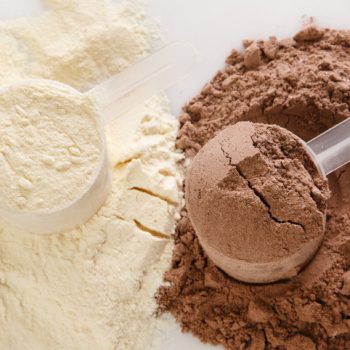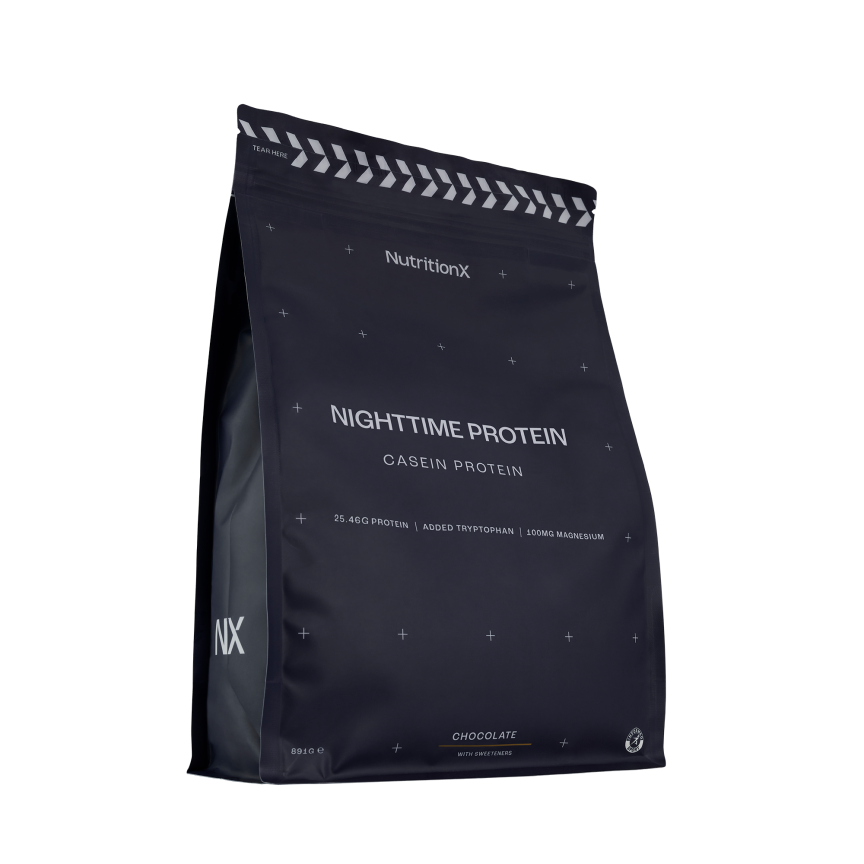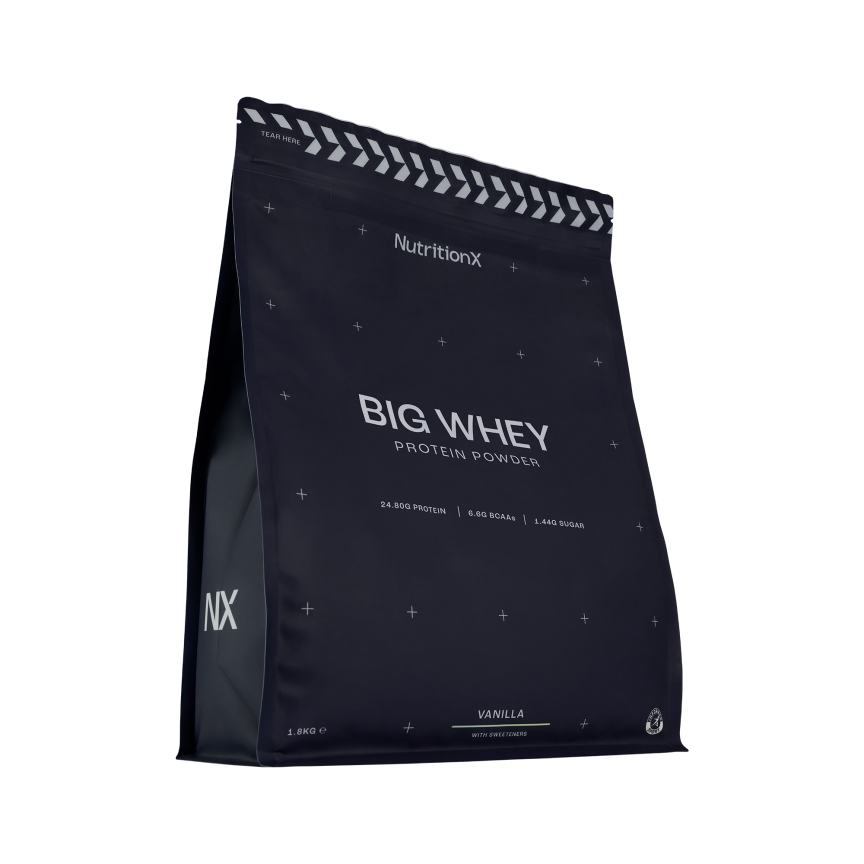What is casein protein powder?
Casein is a slow-release protein which is particularly useful to athletes as a protein source at bedtime.
Casein is an important constituent of milk, making up around 80% of milk protein. Like whey, casein powder is taken by athletes to stimulate muscle protein synthesis post-exercise. Otherwise known as the recovery and growth of muscle mass.
After heavy training or intense exercise, casein protein is digested slowly by the body. Providing a slow and sustained release of amino acids. This makes it an excellent choice as a prolonged source of nutrition to support muscle recovery overnight. The addition of casein also helps athletes increase their protein intake to meet daily requirements.
What is the difference between casein and whey protein blends?
The main differences between casein and whey protein are their digestion and absorption rates once consumed.
Casein is a slow-digesting protein that offers a gradual release of amino acids into the bloodstream over an extended period. Making it ideal for providing the body with a sustained source of nutrition; ie. overnight.
The science behind Casein protein.
Whey protein is considered a fast-digesting protein. It is absorbed by the body more quickly, leading to a quick spike in amino acid levels in the bloodstream.
Due to its rapid absorption, whey protein is commonly consumed around workouts to support quick and effective muscle protein synthesis. Particularly useful after a heavy training session, match or endurance event.
The science behind our Big Whey Protein powder.
How is casein protein made?
Alongside whey, casein protein is a constituent of milk and is typically consumed in the form of a protein shake or supplement.
Just like whey protein, casein protein is extracted from milk. During the process, a curdling agent is added to milk to separate the solids and liquids, causing clumps to form and ‘separate’ on top of the liquid whey. The curds can then either become cheese or be transformed into a dehydrated powder, which can then be used as a casein protein supplement.
When should you take casein protein powder?
Thanks to its slow digestion and absorption rate, casein protein is ideally consumed immediately before bedtime. This is to stimulate muscle protein synthesis as you sleep.
At least 40g of protein should be ingested prior to sleep in order to maximise muscle protein synthesis throughout the night. The process responsible for muscle growth and repair during rest.
Our Nighttime Casein Protein Powder is the ideal casein protein supplement for athletes. It contains Tryptophan and Magnesium which can be used to improve sleep quality and duration.
Does casein protein help you sleep?
Casein protein provides a slow release of nutrition throughout the night thanks to its slow digestion rate. This could help to prevent sleep-disturbing hunger pangs, maintaining a stable blood sugar level to support a more restful sleep.
Another important element to consider in the Nutrition X Nighttime Casein Protein are the additions of Tryptophan and Magnesium. Both have been shown in studies to promote sleep quality and quantity.
Athletes need to have a holistic approach to a good night’s sleep. Ensuring that nutrition throughout the day - and the sleep environment - is as conducive to a restful night’s shut eye as possible. That means minimising screen time before bed, as well as keeping a careful eye on caffeine intake throughout the day.
Can you drink casein protein during the day?
Although it’s great to consume immediately before bed, casein protein can be consumed at any time of the day.
Its slow-digesting nature can be beneficial throughout the daytime. It can help athletes feel fuller for longer whilst also supporting muscle protein synthesis. This high satiety value can be particularly good for athletes who have busy schedules, ensuring a protein-packed meal/snack to help count towards daily protein targets.
Can I mix casein and whey protein?
Yes, you can mix casein and whey protein together. Combining whey and casein protein is a common practice among athletes, to reap the benefits that both casein and whey present.
Whey protein offers the advantage of immediate amino acid availability for post-workout recovery to stimulate muscle protein synthesis. Whilst casein protein provides a sustained release of amino acids over a more extended period.
You could, for example, mix a casein protein supplement with milk, for a blend of whey and casein. It’s worth noting, however, that mixing whey and casein can slow absorption rates of the whey.










